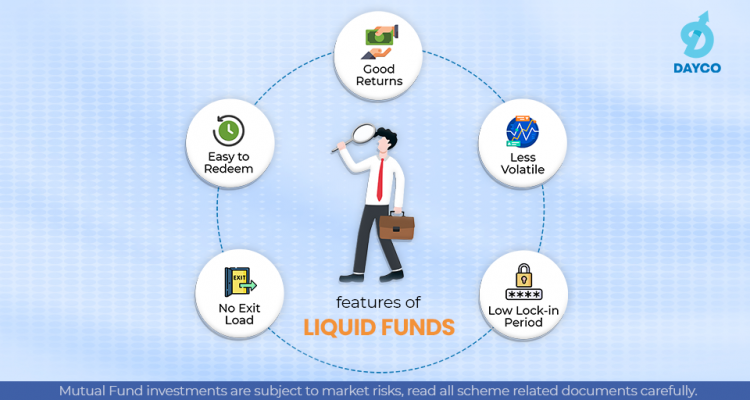Liquid mutual funds offer a convenient and efficient solution to park short-term funds or emergency reserves for investors. These funds provide stability, liquidity, and potential for reasonable returns, making them an ideal choice for investors seeking short-term investment opportunities. In this blog, we will explore the concept of liquid mutual funds, their benefits, and key considerations for choosing the right fund for your needs.
What are Liquid Mutual Funds?
Liquid mutual funds are a category of mutual funds that primarily invest in short-term debt and money market instruments with a maturity period of up to 91 days. These funds focus on capital preservation and liquidity, making them less prone to market volatility compared to other types of mutual funds. The underlying assets of liquid funds typically include treasury bills, listed commercial papers, and certificates of deposit.
Benefits of Liquid Mutual Funds:
- Liquidity: Liquid funds are designed to provide quick access to funds when needed. Investors can redeem their investment partially or in full at any time, usually within 24 hours in the case of insta redemption facility (limited to 50K) offered by fund houses. However, funds withdrawn within 7 days of investment attract exit load. This feature ensures that your short-term funds or emergency reserves can be readily available without any significant exit load or penalties.
- Stability: Liquid funds invest in high-quality, low-risk debt instruments, which offer stability to your invested capital. The focus on short-term securities minimizes the impact of interest rate fluctuations, making liquid funds relatively less volatile than long-term debt or equity investments.
- Reasonable Returns: While the primary objective of liquid funds is capital preservation, they also aim to generate reasonable returns. The returns offered by liquid funds are generally higher or commensurate than traditional savings accounts and fixed deposits of similar tenure. Remember that the returns may vary and aren’t guaranteed as in FDs or RDs. They usually align with prevailing short-term interest rates, providing a potentially attractive avenue for short-term investments.
How to Choose a Good Liquid Fund
When selecting a liquid fund, it is essential to consider certain factors beyond just returns, given that these funds are primarily used for parking short-term and emergency funds. Here are some key considerations:
- Asset Under Management (AUM) Size: Opt for a fund with a substantial AUM size as it reflects investor trust and confidence in the fund. A larger AUM indicates a well-established and reliable fund, which can be advantageous when it comes to liquidity management.
- Credit Quality of Portfolio: Assess the average credit quality of the fund’s portfolio. AAA-rated instruments (highest credit quality) should dominate the portfolio to ensure minimal credit risk. This indicates that the fund invests in financially sound issuers, minimizing the chances of default.
- Allocation to Lower-Rated Instruments: It’s important to check the proportion of AUM allocated to lower-rated instruments. Funds that allocate a significant portion to such securities may indicate a higher risk appetite, potentially compromising capital safety. Ideally, funds with allocations higher than the peer average in these instruments should be avoided.
- Expense Ratio: Compare the expense ratios of different liquid funds. Lower expense ratios imply lower costs, leading to relatively higher returns for investors. However, do not compromise on the fund’s quality and creditworthiness solely based on expense ratios.
Final Word
Liquid mutual funds present an excellent investment avenue for individuals looking to park short-term funds or emergency reserves. These funds offer stability, liquidity, and reasonable returns, making them a suitable option for investors.
If you have a question, share it in the comments below or DM us or call us – +91 9051052222. We’ll be happy to answer it.
~ Nischay Avichal
















